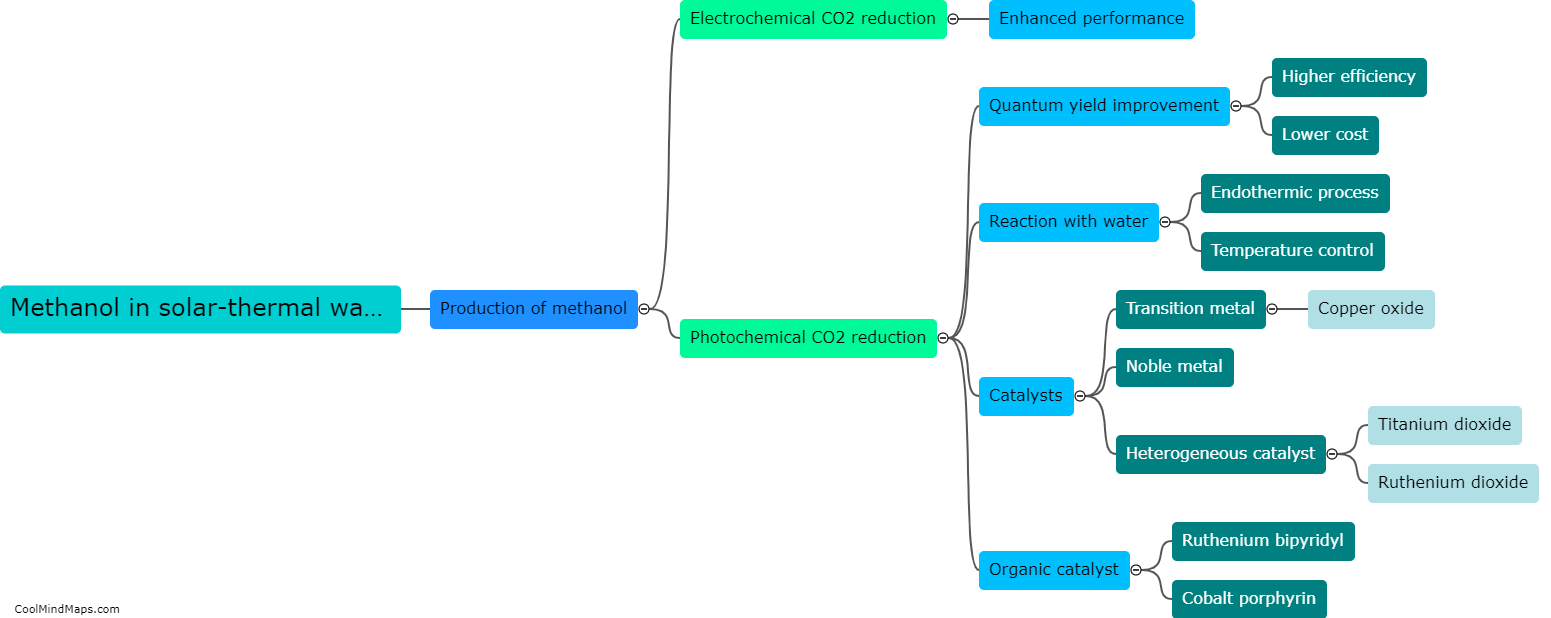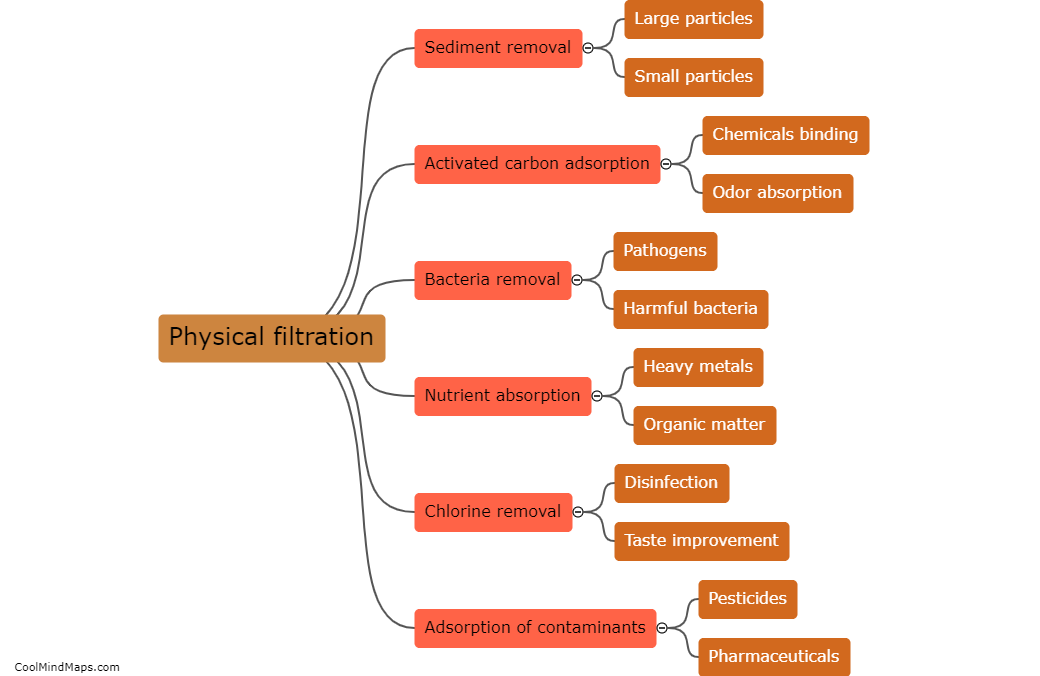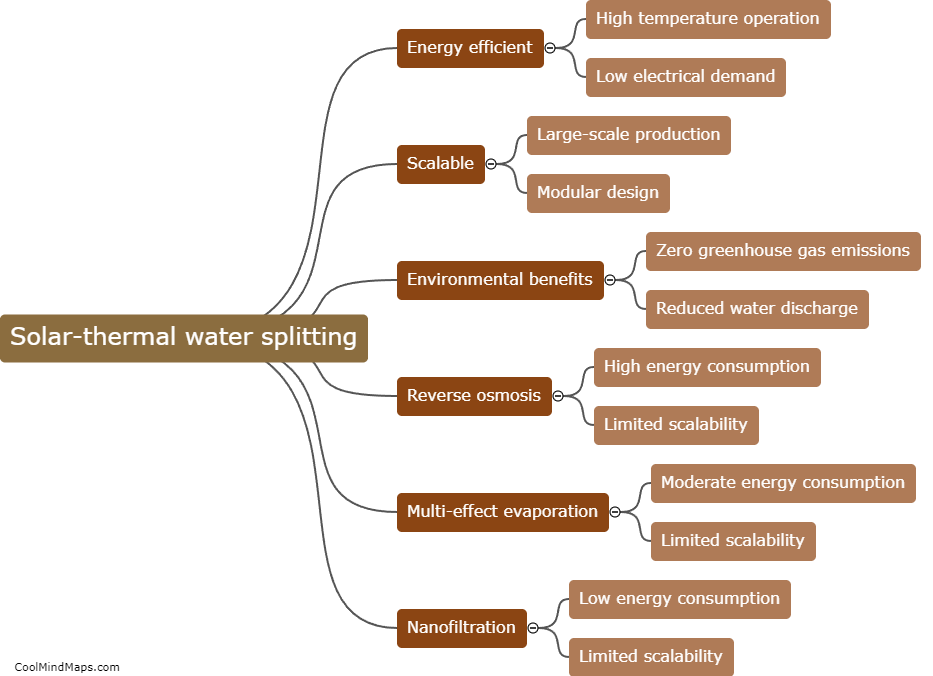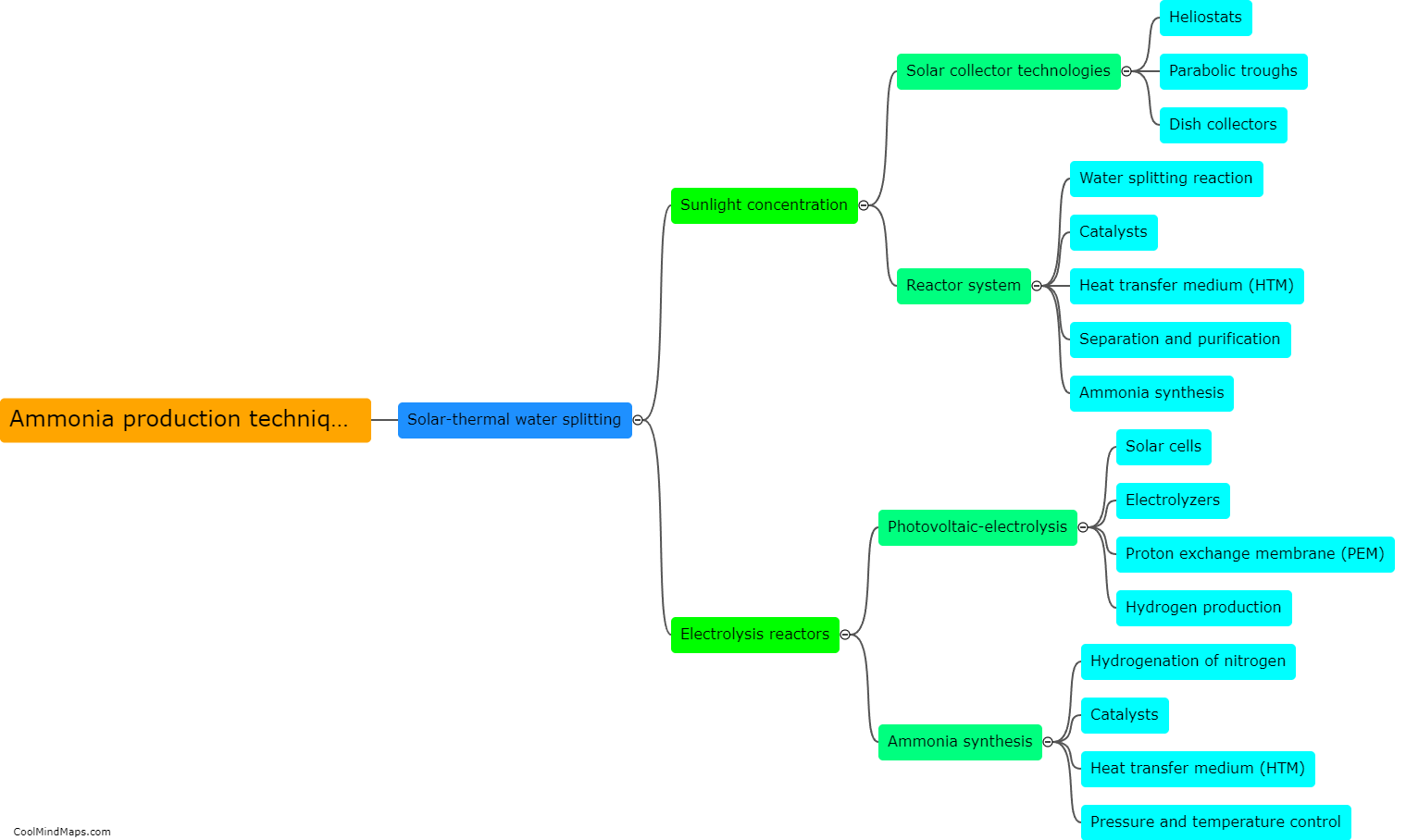What is the role of methanol in solar-thermal water splitting?
Methanol plays a crucial role in solar-thermal water splitting, which is an important process in advancing renewable energy technologies. Solar-thermal water splitting involves the use of sunlight to obtain hydrogen from water through a two-step process called thermochemical water splitting. In this process, the first stage is the breaking down of water into hydrogen and oxygen using concentrated solar energy. Methanol, a liquid fuel, is used as a carrier for hydrogen produced in the first stage. It captures the hydrogen gas and allows for its storage and transportation, making it more versatile and convenient for future energy applications. Methanol's role in solar-thermal water splitting is thus vital in effectively harnessing and utilizing hydrogen as a clean energy source.

This mind map was published on 4 October 2023 and has been viewed 123 times.











